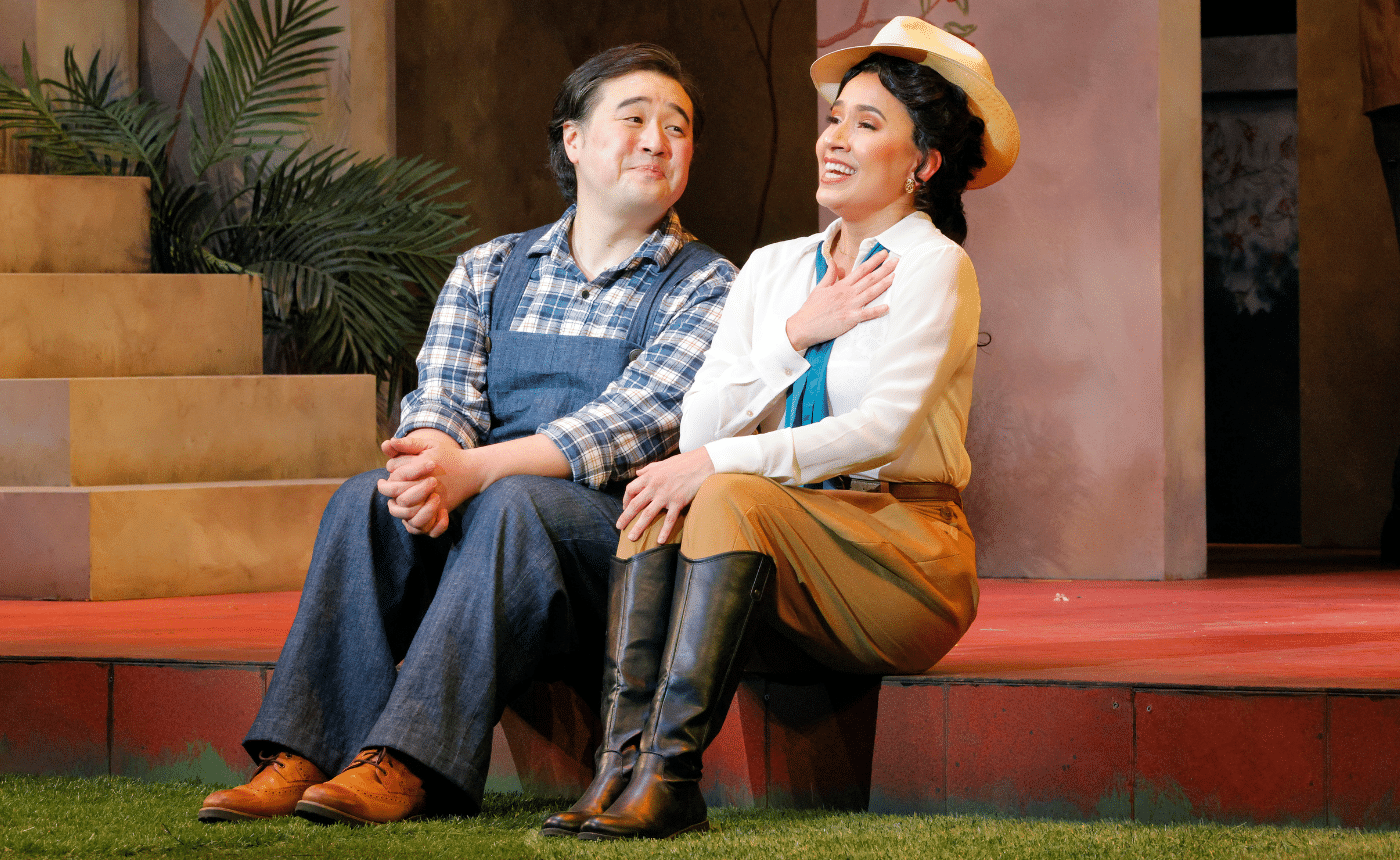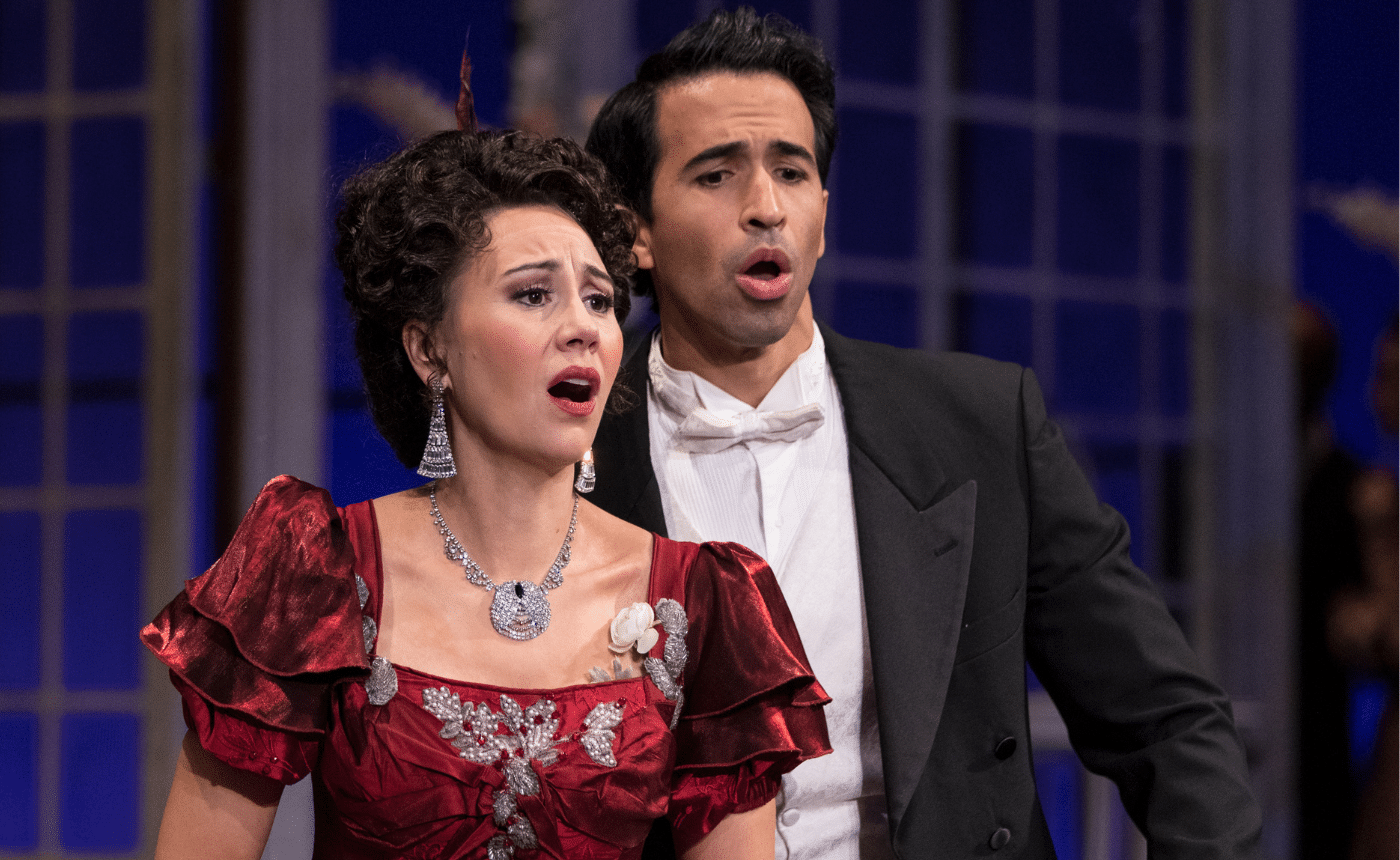Synopsis: Leoncavallo’s “Pagliacci”
Setting: A Small Village in Italy
PROLOGUE
Near the end of the overture, Tonio slips out in front of the curtain and addresses the audience. He warns us that we are about to see a real slice of life, and that actors, like us, are real people with real feelings.
ACT I
With an exuberant, discordant fanfare, a troupe of clowns enters a small town to the delight of thronging inhabitants. They announce that they will be performing that very night. Tonio offers a hand to help leading lady Nedda, but is rudely pushed away by her husband, the jealous Canio, who is head of the troupe. A chorus of delighted villagers suggests friendly drinks at the local tavern. Canio accepts, but Tonio says he will have to wrap things up before he can join them.
When villagers playfully suggest that Tonio might be sweet on Nedda, Canio’s angry response is a surprise. He regains his composure and leaves with the revelers. As the church bells ring for vespers, Nedda is left alone to contemplate her confining life, her romantic yearnings and her fear of the volatile Canio. She watches the birds in the sky, admiring their song and envying their freedom. When Tonio returns and confesses his love for her, she treats him like the fool he plays onstage, contemptuously striking him with a whip. But Tonio knows that Nedda does indeed have a lover: Silvio, a man from town. He rushes away to tell Canio, who returns just in time to glimpse Silvio leaving Nedda after an apparent tryst. Though Canio gives chase, Silvio escapes without being recognized. Alone and tormented by jealousy, Canio prepares for the evening performance, donning his costume and makeup with the famous aria “Vesti la giubba”—”put on the costume.”
ACT II
Townspeople excitedly assemble for the troupe’s performance; Nedda in costume takes up the collection. Circulating among the onlookers, she’s able to warn Silvio that he’s in danger. As the play begins, we realize that the line between reality and fiction is blurring: While the flirtatious Colombina’s husband is out for the night, Harlequin, her lover climbs in the window, making sport of the foolish Taddeo. When Pagliacco returns, Harlequin escapes, and Colombina calls out to him with the same words Nedda used in parting with Silvio: “I will always be yours!” Canio is enraged.
As the action onstage becomes more desperately real, the delighted townsfolk are enthralled with its intensity. Nedda tries to maintain the pretense, addressing her husband by his stage name, Pagliaccio. But Canio is no longer acting. He violently demands that Nedda reveal the identity of her actual lover. Then she, too, abandons the script, swearing she will never divulge his name. Canio grabs a knife and stabs Nedda and then Silvio, who has rushed to the stage to defend her. As the lovers die before the horrified audience, Canio announces “La commedia è finita!”—”The comedy is finished!”




